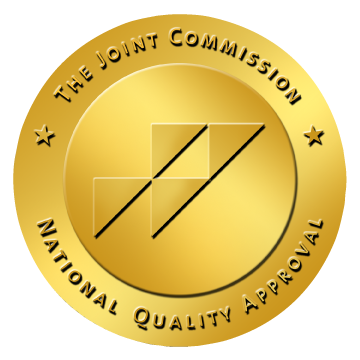Making the decision to seek help for an addiction to drugs or alcohol is a brave step, but you might be concerned about how this decision may impact your employment. Chances are your addiction is already impacting your job. You may think that you have hidden your substance abuse from your employer, but it’s highly likely that there have been noticeable issues with your work performance that have already occurred because of your addiction.
Here's the good news: working professionals can attend addiction treatment, but it requires an understanding of the law, your employer’s rules, and a willingness to have a frank conversation with your HR department and your supervisors. As with any legal decision, you should also talk to a legal professional to better understand your options, too.
It’s important to start your recovery journey with an understanding of your employer’s specific policies around drug and alcohol misuse, as well as your options to take a leave of absence for addiction treatment. Some companies may already have steps in place for employees.
Depending on your organization’s size, your employer may be able to refer you to treatment through certain pre-arranged facilities. The decision of where you want to attend treatment, however, is still up to you. Addiction is a serious health concern, and your recovery should be treated as seriously as any other health care treatment you would seek.
So, what’s the first step as you explore your options? Reach out to your human resources department to learn about your company’s existing policies and any programs that may be available for addiction treatment.
It’s also important to understand how federally mandated protections can help protect your job should you seek treatment.
The Family Medical Leave Act (FMLA) and the Americans with Disabilities Act (ADA) both provide employees with the rights to take leave from their jobs to attend rehab. But there are important details to understand about each law.
For instance, FMLA can be used by an employee for treatment of substance abuse. It allows for up to 12 weeks of unpaid leave without the person losing their job. However, if the company has a nondiscriminatory policy in place stating that an employee can be fired for substance abuse, FMLA would not apply.
Additionally, an individual seeking addiction treatment must inform their employer upfront about the need for time off. If they do not follow the process established by FMLA correctly, they could be putting their job at risk. For example, failing to inform their employer before entering a treatment facility could harm their job security.
The ADA is another federal law that offers reasonable protections to anyone with a disability. This law can also cover drug and alcohol addiction, but it does so differently. Alcohol addiction is covered under the ADA whether the person is currently struggling or has in the past. However, the ADA only covers drug addiction if the person is no longer using the drug.
Under the ADA, a person is considered to have a disability if he or she:
1. Is dealing with a physical or mental challenge that greatly impacts their life (for example, a mental illness, an alcohol use disorder, or a chronic health condition) OR
2. Is in recovery from a physical or mental challenge that greatly impacted their life (for example, recovering from an illness or in recovery from a substance use disorder) OR
3. Is assumed to have a physical or mental challenge by the employer, who then discriminates against them based on that judgment (such as firing them or treating them differently than other employees)
Employee Assistance Programs (EAPs) can be valuable resources for individuals seeking help with addiction recovery while maintaining employment. EAPs are employer-sponsored programs that support employees' well-being, including addressing substance abuse issues. Here's how EAPs can help individuals with addiction recover without jeopardizing their jobs:
It's important to note that the specific services and level of support EAPs provide can vary between employers. Employees should familiarize themselves with their company's EAP offerings and seek assistance when needed. Seeking help for addiction through an EAP is a proactive step that can lead to recovery and help individuals maintain their employment and overall well-being.
Talking to an employer about your substance use can be scary, but it’s important to be open and honest to secure their support. Start by scheduling a time to speak one-on-one in private. This information needs to be shared in person, not through an online message or email.
You don’t have to go into detail, but it can be helpful to give the employer an overview or explanation of what you have been experiencing in terms of your substance issues. This is also an opportunity to acknowledge if your work has suffered and how attending rehab can help you improve your performance moving forward.
Whatever you say to your employer should remain confidential. You may want to state that up front, as well as during the conversation. It may also be smart to have a representative from your human resources department participate in the conversation.
There’s no doubt that discussing your addiction struggles with an employer can be intimidating and embarrassing. But seeking help is brave and worthwhile, and with the proper support from your employer and federal law, you should be able to seek treatment without risking your career.
Providing highly personal treatment and recovery options, our team at the New England Medical Group, offers holistic care that gets to the root cause of addiction and mental health challenges. We provide individuals with the local, flexible care they need when they need it, so they can focus on what matters most: their recovery.
Remember: we’re not lawyers and this isn’t legal advice. Always consult a legal professional for detailed advice about your particular situation.
